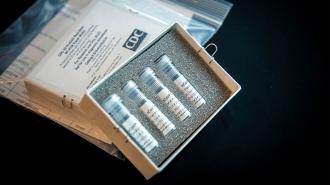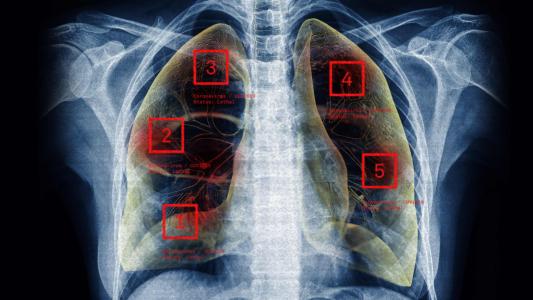The Bill and Melinda Gates Foundation is funding a project that will deliver at-home coronavirus testing kits to people in the Seattle area who suspect they might have COVID-19.
Washington has been one of the states hit hardest by the COVID-19 outbreak, with more than 125 confirmed cases and 19 deaths. The majority of those cases have been in the Seattle area, which also serves as the home base for the Gates Foundation.
To address this outbreak, the Foundation has announced that it is committing $5 million to a project focused on developing at-home coronavirus testing kits for deployment in the Seattle area.
At-Home Coronavirus Testing
The at-home coronavirus testing project won’t need to start from scratch — it will build upon another local project with a Bill Gates connection: the Seattle Flu Study.
Two years ago, Gates Ventures, the philanthropist’s private office, dedicated $20 million to fund that University of Washington-based research project, which sent thousands of at-home test kits to volunteers to explore how infectious diseases like influenza spread throughout a population.
The new project will apply knowledge gleaned from that study to coronavirus testing.
“This project has enormous potential to turn the tide of the epidemic.”
Scott Dowell
Once it’s up and running, people in the Seattle area who suspect they might have COVID-19 will fill out an online questionnaire about their symptoms. They’ll then have the opportunity to request an at-home coronavirus testing kit if their symptoms are consistent with COVID-19.
The kit will arrive in just two hours, and the person will use it to swab their own nose. The swabs will then be collected and transported to a lab, which will test them for the coronavirus.
At-home testing would make it possible to diagnose people with COVID-19 without having them leave their homes and potentially spread the coronavirus to others. At the same time, it would also keep people who don’t have the disease away from hospitals or clinics where they might catch it.
Scott Dowell, leader of the Gates Foundation’s coronavirus response, couldn’t provide The Seattle Times with a definitive timeline for the project’s launch, noting that it still needs to develop the questionnaire and upgrade the supporting software.
Once it does launch, though, the project aims to process thousands of at-home coronavirus testing kits every day.
“One of the most important things from our perspective, having watched and worked on this in other parts of the world,” Dowell said, “is the identification of people who are positive for the virus, so they can be safely isolated and cared for, and the identification of their contacts, who can then be quarantined.”
“Although there’s a lot to be worked out, this (project) has enormous potential to turn the tide of the epidemic,” he added.
Gates Foundation Funds
This isn’t the Gates Foundation’s first dedication of funds to combat the COVID-19 outbreak.
In late January, it announced a $10 million commitment toward response efforts in China and Africa. On February 5, it increased the amount to $100 million for global coronavirus testing and treatment efforts.
“Our hope is that these resources will help catalyze a rapid and effective international response,” Gates Foundation CEO Mark Suzman said in a news release at the time. “This response should be guided by science, not fear, and it should build on the steps that the World Health Organization has taken to date.”
Unfortunately, the United States’ response in the weeks since then has fallen well short in terms of coronavirus testing.
As of March 9, roughly two weeks after COVID-19 began spreading in the U.S., the nation had tested just 4,384 people for the coronavirus, according to The Atlantic’s calculations. For comparison, South Korea tested 100,000 people during the first two weeks of its outbreak.
The difference between those coronavirus testing figures is even more dramatic when you consider that the population of the U.S. (327 million) is far greater than that of South Korea (51 million).
Average it out, and while South Korea was testing one in every 514 residents during the important first weeks of its COVID-19 outbreak, the U.S. was testing just one in every 81,800.
Turning the Tide
Much of the blame for the U.S.’s low testing numbers centers on its tight restrictions on who could be tested and a general unavailability of functional coronavirus test kits — the Centers for Disease Control and Prevention shipped faulty ones to state and local labs in early February.
As Dowell noted, based on the Gates Foundation’s wealth of experience with outbreaks elsewhere in the world, knowing how many people have a disease is essential to containing it.
Right now, the U.S. really has no clue how many people have COVID-19 because it simply hasn’t tested enough people for the disease.
If the Gates Foundation-funded group is able to figure out how to make at-home coronavirus testing work in Seattle, though, perhaps there’s a chance it could be scaled up to the national level.






